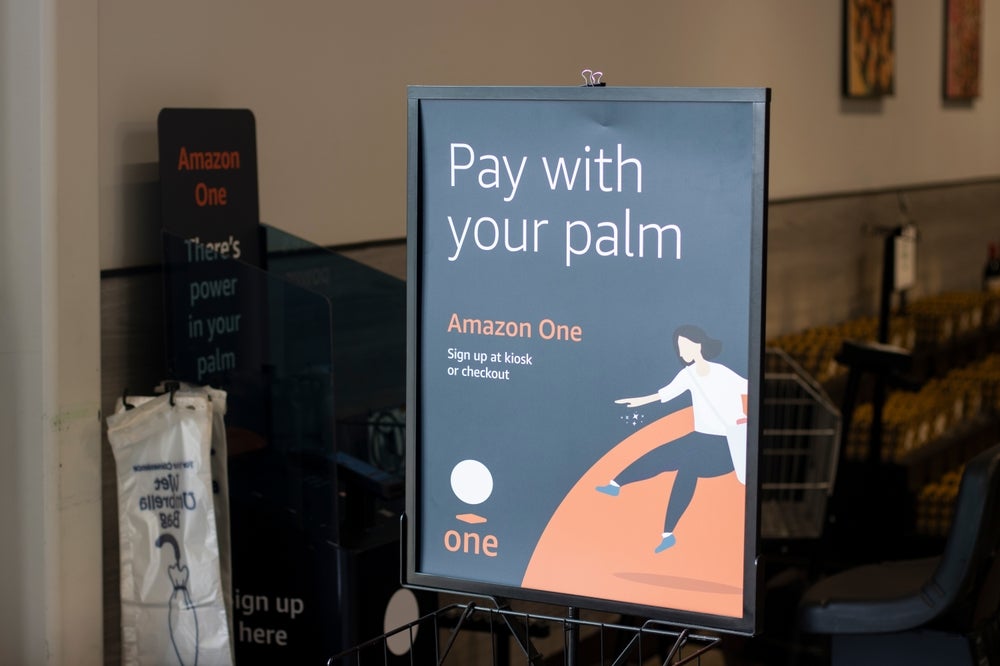In an era where the digital landscape is continually evolving, biometric payment methods are set to transform the finance industry.
Fingerprint, facial recognition, and voice recognition have become more than just features on our devices; they are keys to a secure and efficient financial future. Despite the revolutionary shift, the journey towards widespread adoption is not without its hurdles.
A cashless society—the idealistic utopian world we aimed for decades ago, spearheaded by biometric payment methods—is not without crucial regulatory concerns. Biometric payment cards and the use of fingerprints and facial recognition require thorough approval from global payment processing giants like Mastercard and Visa. Mastercard is collaborating with various partners—including NEC, Payface, Aurus, PaybyFace, PopID, and Fujitsu—to pilot and introduce biometric payment capabilities globally while ensuring compliance with industry standards and specifications. ABI Research predicts that biometric payment cards will account for up to 9% of annual contactless payment card shipments by 2026, with an estimated 41 to 254 million units shipped worldwide.
Balancing innovation and privacy concerns
While the convenience of biometric payments is undeniable, there are concerns regarding privacy and cybersecurity. The storage and protection of sensitive biometric data within devices or cards serve as a double-edged sword.
On one hand, this approach secures a robust shield against data breaches. However, the centralisation of such critical information raises valid fears in consumers about unauthorised access and misuse. Although tech-savvy consumers find themselves waving palms, smiling into cameras, and scanning their fingers, most traditional payment users feel that the technology is uncanny and worry that it is taking over their traditional way of paying.
Finding the right balance between security measures and convenience is essential to build public trust in these payment methods.
Biometrics protect against fraudulent intrusions
Where biometric payment methods really shine is in the realm of fraud prevention. The inherent difficulty in replicating fingerprints, facial features, and voice samples acts as a powerful barrier against unauthorised access.
Unlike conventional passwords, which are often under threat from theft, biometric authentication adds an extra layer of security to financial transactions. The integration of these methods into mobile devices further fortifies the security structure, providing real-time verification and reducing the risk of fraudulent activities.
Transformative payments in the Covid era
The Covid-19 pandemic accelerated the adoption of contactless payment methods, including biometric payments, due to their more hygienic and convenient nature. With concerns about physical touch and hygiene amid the pandemic, consumers were reluctant to use cash and pin-pad card machines that posed contamination risks.
The use of biometric payment methods increased, offering a hands-free and secure alternative to traditional payment methods. In its Online Payments in Retail report, GlobalData notes that Amazon has begun trialling palm recognition software in its cashier-less stores, allowing payments to be made without the assistance of a device. This was introduced when the pandemic was coming to an end, amid the growing popularity of biometric payments.
Biometric payments will force a change
As biometric payment methods gain traction, the landscape of finance undergoes a paradigm shift. The sheer convenience and security offered by these futuristic payment methods put conventional payment systems on notice.
The elimination of passwords, a reliance on real-time verification, and the secure storage of biometric data represent a new era in financial transactions. This evolution not only aligns with the consumer demand for simplicity but also sets the stage for a future where the authenticity of an individual is seamlessly linked to their unique biometric indicators.








